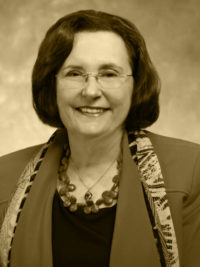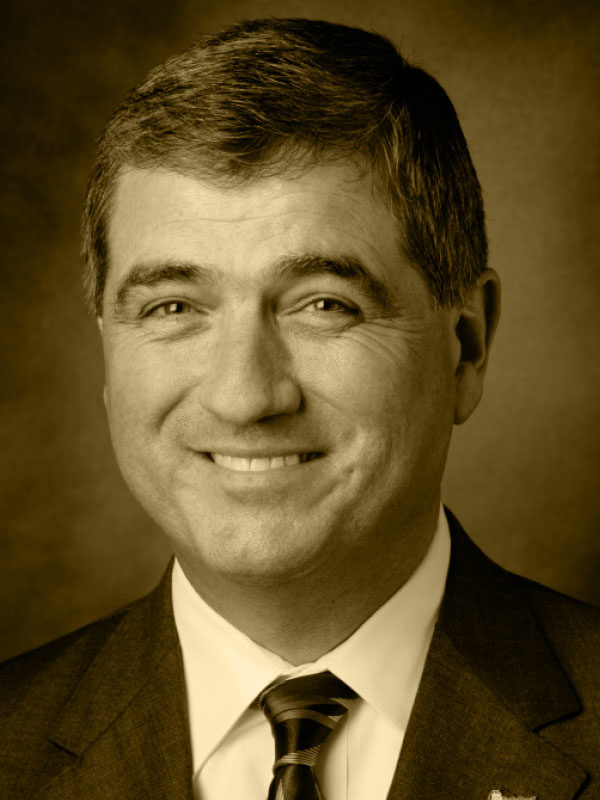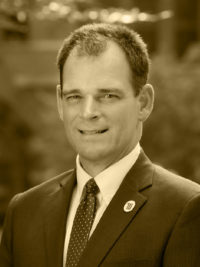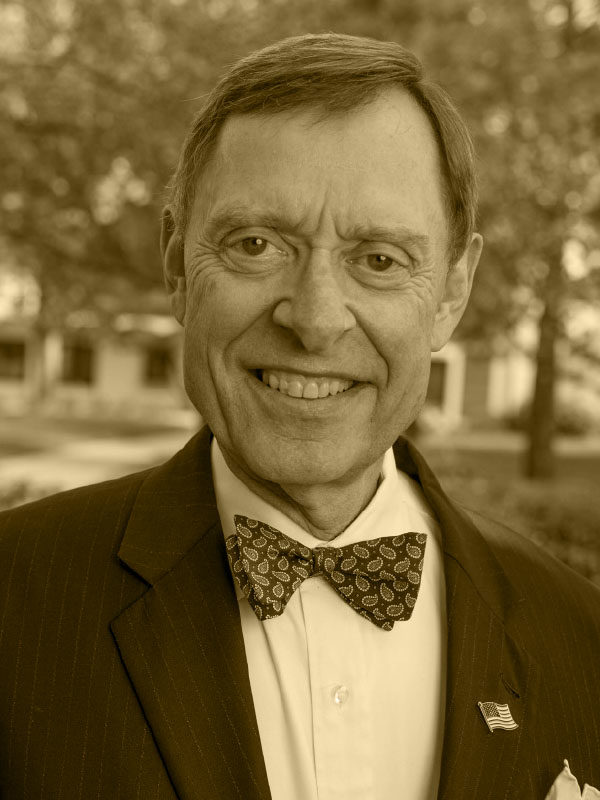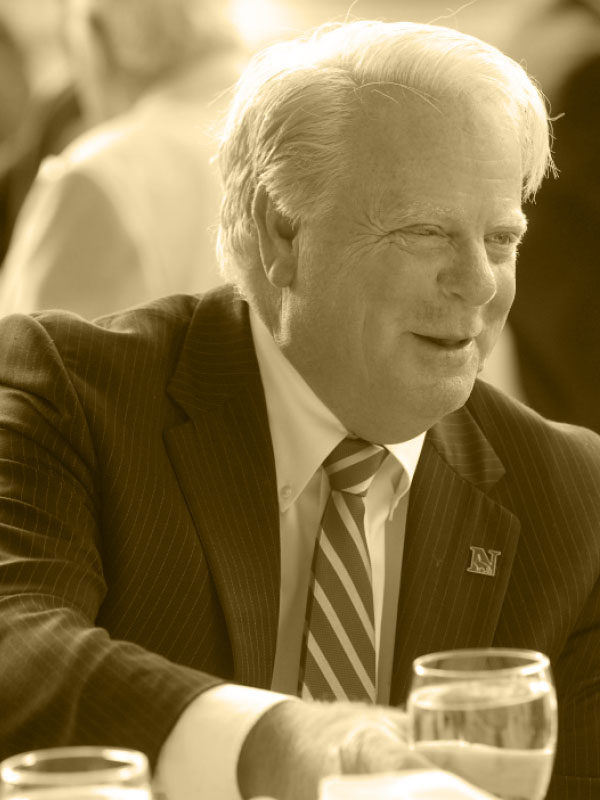“Are you going to be a candidate for the presidency?”
Jerry Farley laughed out loud at this question asked by his boss, the soon-to-be-retired president of Oklahoma State University, Stillwater, Okla. “Becoming a president had never crossed my mind. I had already followed the pathway to my dream job, as vice president and chief financial officer, and I was a happy camper,” says Farley, president of Washburn University, Topeka, Kan.
Farley heard about the opening at Washburn for a president a few years later. “I didn’t pay attention to the Washburn opening at first. But the more I learned about the school, the more interesting the job became because I felt I had the skills to do what they needed,” recalls Farley. “When they offered me the job, it took me about a nanosecond to say ‘yes.’” He recently marked 22 years as Washburn’s chief executive.
Similarly, Morris Beverage Jr. hadn’t considered moving into the position of president, even though he had nearly completed a doctor of management degree while serving as chief financial officer at Lakeland Community College, Kirtland, Ohio. This situation changed when the college’s sitting president unexpectedly announced his early retirement, and the local newspaper publicly speculated whether Beverage would be his successor.
“I had planned to leave public finance and do something different with my new degree, but everyone assumed I would apply for the president’s position,” says Beverage, who was named Lakeland’s president in 2001. “A couple of board members encouraged me, but I was skeptical at first because I was the chief business officer, not the chief academic officer.”
Beverage’s skepticism is understandable. According to the American College President Study 2017, conducted by the American Council on Education (ACE), an institution’s academic wing remains the traditional pipeline to the presidency: 43 percent of presidents come from academic affairs. In fact, because of their business office backgrounds, both Beverage and Farley were referred to as “nontraditional” or “unusual” candidates by the presidential search committees.
“You’re looked at differently when you don’t come up through the academic ranks,” confirms Maurice Scherrens, president of Newberry College, Newberry, S.C. While he was senior vice president and chief operating officer at George Mason University, Fairfax, Va., Scherrens completed his doctorate—a “must have” for anyone serious about becoming a president, he notes—after which he became an adjunct professor. Scherrens believes his 14 years of classroom experience teaching ethics and graduate-level finance helped make him a candidate for Newberry’s presidency and provided evidence of his understanding of the demands placed upon faculty. After accepting the position, Scherrens immediately put his chief business officer talents to good use, as the college had been feeling financial strain.
A Solid Start
Since Scherrens became its president in 2012, Newberry College has registered a record high enrollment of new students, had its accreditation fully affirmed, and launched its first comprehensive campaign. At Lakeland, Beverage also depended heavily on his finance background when he became president just a few weeks before the 9/11 terrorist attacks. The tragedy triggered large, rapid cuts in state funding for the college and ushered in several lean years.
In many ways, the CBO’s role serves as a good training ground for the presidency. Because of increasing financial pressures, colleges and universities value the core skills of a CBO to understand, analyze, and explain revenues and expenditures. In addition, a CBO typically takes on leadership roles, deals with personnel issues, works closely with academic officers and other cabinet members, supports fundraising initiatives, oversees construction and other special projects, and commands a basic understanding of all university operations—from enrollment to physical plant to campus safety. A president’s role encompasses all of the above, and then some—especially alumni and donor relations.
“When you’re applying for a presidency, the board has to see you as more than a business officer. They have to see [that] you have a broad background and can relate to all areas of a college, so that means broadening your horizons while you’re the finance person,” says Johnette Edwards McKown, who served as executive vice president of business services for McLennan Community College, Waco, Texas, before becoming its third president in 2009. As CFO, for example, McKown deepened her knowledge of student success factors and routinely attended athletic events, theater performances, and banquets outside her area of supervision. Concurrently, she spent a decade as an adjunct instructor at Baylor University—also in Waco, Texas—teaching business and finance in higher education, which enabled her to better understand and build relationships with faculty members.
“Get involved in the real business of the college or university—working with students,” advises Mike Frandsen, who has been president of Wittenberg University, Springfield, Ohio, since 2017. “Find ways to get connected to students and to the revenue-generating parts of the operations, which are enrollment and advancement.” Frandsen, who moved into higher education after a decade in corporate finance, was initially a faculty member in economics and management and then became director of a business honors program at Albion College, Albion, Mich. He explains, “In that role, I got involved in many different facets of the college—recruiting students, working with donors, teaching classes, and developing curricula—which really prepared me for the presidency.”
In addition, whenever Albion’s president at the time provided campus leadership opportunities, Frandsen accepted them. Participation in special projects, such as serving on board-level task forces, raised his profile campuswide. When the college’s vice president of finance and administration left—to become a college president—Frandsen offered to fill the void by stepping into the position temporarily; he ended up staying for four years. He also spent a year as Albion’s interim president before becoming vice president for finance and administration at Oberlin College, Oberlin, Ohio, in 2014.
Personal and Professional Pressures
During his tenure at Albion, Frandsen and his wife participated in a program for prospective presidents sponsored by the Council of Independent Colleges. The eight-month program, which is bookended by weekend retreats, pairs each participating couple with a mentor to explore the leadership roles of both presidents and their partners.
Given the time commitment associated with the presidency, not to mention the relocation that may be necessary, it helps to have one’s spouse or partner on board with the idea of becoming a president even before such an opportunity presents itself. Scherrens, in fact, attributes much of his success to his wife, Sandy, who has more than 30 years of higher education experience, primarily as a chief student affairs officer.
“The job is so demanding that to be successful you need a spouse who understands and supports your work. It takes a team,” observes McKown. Her now-retired husband, for example, was a Southern Baptist minister who willingly moved away from his congregation to join her. Jerry Farley acknowledges that his wife needed some time to become comfortable as a college president’s spouse, particularly because she left her teaching position when they moved to a different state.
Farley describes the presidency as a lifestyle, one that comes with the advantages of always being surrounded by smart people and living in a nice house. Accepting that lifestyle, however, also means accepting the institutional priorities that come with it. Presidents often miss out on family events or vacations in favor of attending campus events or meeting individually with alumni and donors; their time is not their own. As an example, during his first year as Wittenberg’s president, Frandsen estimates he spent 40 percent of his time travelling, focusing on alumni engagement, donor relations, and fundraising.
“The words ‘spare’ and ‘time’ are mutually exclusive,” says Frandsen, who rarely plays golf these days unless it’s with Wittenberg alumni. McKown is equally blunt: “Once you get to the president’s seat, you never have personal time. You’re always ‘on’ and probably can’t go anywhere or do anything without having people ask you something about the school,” she says. Perhaps not surprisingly, 44 percent of the presidents who responded to ACE’s American College President Study 2017 cited “a lack of time to think and reflect” as a key frustration.
Another frustration, expressed by presidents of both public and private colleges, is the lack of urgency—or outright resistance to change—often exhibited by faculty when administrators attempt to address institutional relevance and value.
At the top of the study’s list of what frustrates college and university presidents is lack of resources. As Frandsen says, “Academic institutions are places of great ideas, and there are always more good ideas than we have resources to pursue. We just can’t do everything we’d like to do.” This observation is only magnified when states reduce their funding levels for public higher education or when small colleges feel the pinch of declining enrollments even as tuition discounting increases.
Fortunately, business-officers-turned-presidents already have a well-developed understanding of the financial consequences that may flow from institutional decisions. More typically, the learning curve for these presidents manifests when they transition from a public to a private school, or vice versa, making them less familiar with the specifics of institutional financing. “I didn’t find the transition difficult in terms of the leadership skills and strategies needed, but I had to quickly learn the nuances in the financing,” says Scherrens, who went from a 35,000-student public state institution to the presidency of a small, private liberal arts college with fewer than 1,000 students. For example, he adds, “Some CFOs at public institutions don’t need a deep understanding of financial aid, but at a private institution it’s huge. Also, at a private institution, fundraising is a big part of the president’s job.”
Big Rewards
More than compensating for the challenges of the position, say college and university presidents, are the accompanying satisfactions and rewards. And all of these revolve around students.
McKown, who says she is still a teacher at heart, enjoys individually coaching McLennan’s presidential scholars—about two dozen students who receive scholarships that cover the costs of tuition, fees, and books. For his part, about every three weeks, Farley and his wife invite 30 randomly selected students and one faculty member for dinner and conversation at the president’s house. “You’d be surprised how much you learn from an 18-year-old,” he says.
For Frandsen, who began his career as a swimming coach, it’s hard to beat seeing students in action, whether they’re acting in a play, presenting their research, or participating in a sporting event. “Whenever I can spend time seeing students do what they’re passionate about, that gives me the energy to face the job’s challenges,” he says.
Scherrens defines a good day as any time someone believes enough in the institution to make a major gift or donation, or whenever he hears about a faculty member going beyond the call of duty to help a student succeed. He likely speaks for all college and university presidents when he says the most rewarding part of the job is seeing students “cross the finish line” by walking across the stage to receive their diplomas.
For business officers who imagine themselves on that stage, ready to share a presidential handshake with new graduates, Farley suggests walking into the academic offices across the hall and simply starting a conversation. “Understand how the academic side works and how to help them. In general, as you prepare for the job, assume you’re responsible for the operation of the entire university,” he says. “If you take that attitude as a CBO, you’ll know an awful lot about the university and better prepare yourself to be CBO or, if you want to go beyond that, a president.”
SANDRA R. SABO, Mendota Heights, Minn., covers higher education issues for Business Officer.




